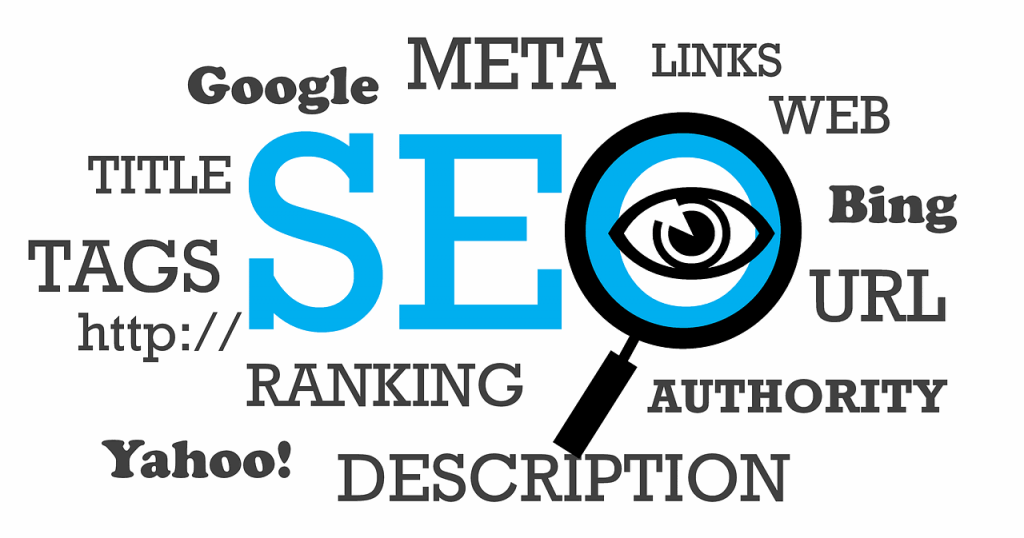SEO Should Stand For ‘Search Experience Optimization
Websites are as integral part of our lives as are morning coffees: you don’t even realize you’re addicted to them until you’re forced to spend a day without them.

By Iffy Kukkoo
14 Jun, 2016
Websites and Types of Websites
Websites are as integral part of our lives as are morning coffees: you don’t even realize you’re addicted to them until you’re forced to spend a day without them. There are over 1 billion active websites at the moment, and very soon, their number is expected to surpass the number of people living in the most populated country in the world (be it China, or India by then).
Originally, websites were almost exclusively informational. However, nowadays, there are many different types of websites, anything from personal and community building websites, to websites dedicated to humor and webcomics, from writers’ websites and blogs to photo-sharing and e-commerce websites. Of course, there are gaming and dating websites, but there are also gambling websites or websites trying to sell you fake news. It’s a jungle out there, so beware of attack websites – which are created specifically to attack your computer – or, much worse, deceptive websites, which might trick you into giving personal information.
But, how should you do this? How, especially if you’re beginner, can you make the difference between a genuine news portal and a fake news website? Or, better yet: how are you supposed to find exactly what you’re looking for among more than a billion websites? It’s like looking for an information within an almost infinite encyclopaedia. Even if you had an indexed PDF version, it would probably take an hour before Adobe’s search engine finds what you’re looking for – and only if you’re looking for exactly what you’ve written down in the search field!
Well, as you already know, there are websites for that too. There are called web search engines, and unless you’re living somewhere in East Asia or Russia, you probably know them simply as Google. Because Google is not just the most popular search engine in the world, it is basically the only one: with a market share of 81,12% and growing, it’s practically a monopoly, with Bing (~7%), Baidu (~6%) and Yandex, mostly local competitors.
It’s Google’s Way… Or the Highway
When you enter a query in a search engine – say Google – the engine uses your keywords to find relevant, popular and authoritative websites which might be helpful to you. Of course, this means not only finding what you’re looking for, but finding it at the most appropriate place possible. For example, if you enter ”˜new iPhone’, the first two or three pages listed as results will probably be links to Apple.com since they are the company which manufactures the iPhone, making their website the most authoritative on the subject. Probably you wouldn’t want a link to a second-hand IT dealer as your first result; consequently, neither does Google.
The equation is simple: the higher the rank of your website, the greater the chances of people actually visiting it. In fact, if it isn’t among the first 10 Google results, there’s almost no chance of your website being visited on a more regular basis. In fact, according to a recent study, 91.5% of the people don’t go further than the first page of Google’s search results (the Top 10 pages), and only 2.4% of the people get to the tenth result. The majority of the traffic (a third) is received by Google’s top listing exclusively, with only 17.6% and 11.6% of people visiting the second and the third result respectively.
Naturally, the main objective of most websites is to be ranked as high as possible by Google. Its search algorithm takes a hundred factors into consideration before deciding on a websites’ ranking. Keywords are important, true, but so are keyword density and click-through rates (CTR), not to mention the more technical elements contributing to both a website’s quality and its ranking position. Understandably, most owners try to optimize their websites in a manner which will result in Google’s algorithm ranking them higher and prospective customers accessing them easier.

 Do you need some help?
Do you need some help?
Flirting With Google’s Algorithm
Google, in fact, has constantly encouraged users to optimize their websites: this should theoretically help everybody. Some users, however, are aware of the algorithm’s imperfections and use unethical means to create algorithm-optimized websites and instantly reach a higher listing. In order to counteract their attempts, Google is working constantly on updating its index and modifying the factors contributing to higher rankings.
These are only some of them.
1) High Quality and Relevant Content
Let’s face it: you can have a brilliantly designed website, but its content is what makes it worthwhile in the end. And as long as your website has great and meaningful content, coupled with relevant images and videos (both optional but both recommended), Google will rank your website higher and will consider it as being a more relevant and a more authoritative one.
2) Minimal Bounce Back Rates
Say, you have used some deceptive means to rank your website higher and people visit it regularly. However, if they don’t find the content they’re looking for or see that it’s there but it’s quality is unsatisfactory, they will automatically go back.
The percentage of people who visit a website and immediately leave (‘bounce back’) is known as ”˜bounce rate’ and is an important web analytics tool. If, for example, out of 1.000 visitors sent to your website by Google, 900 bounce back within 10 seconds, Google will decide that your page is not relevant and/or updated and will rank you lower next time someone uses a similar search query.
3) Quick Loading Times
It’s the 21st century, things are moving fast, and nobody has time to spare – and Google knows it. Using data gathered from its Chrome browser, the most popular internet browser in the world with over half of the market share, Google takes great care in checking the load time of your website. If your website is Chrome-optimized and its pages load quickly enough so that you don’t waste the time of your visitors, Google will make efforts to rank you higher.
4) Mobile-Friendly Websites
PCs and laptops seem all but outdated: more than half of internet users use mobile phones and tablets to search the internet. Consequently, Google has included mobile optimization as a relevant parameter for website quality.
A small tag labelled ”˜mobile-friendly’ appears before a website link to tell the user that the respective website is great for browsing on your phone as well. Operating a fully-fledged website on a small screen is an extremely uncomfortable experience for viewers: its load time is much longer, and it consumes a lot of resources. But, provided that the content is rich, a mobile-optimized website is a joy to use and could make any user come back for more.[1]
5) Back-Links
Suppose you write great tutorials. Suppose you are capable of making interesting or funny videos day in day out. Suppose you always have the latest transfer news. Suppose your website is the one a person should visit if he/she wants to find a thing or two about some celebrity.
Of course, this means that many authoritative websites will promote your website by suggesting interested users links to your news or videos. They, in turn, will share your website URL with their friends; and so on. These are called back-links.
So, if your visitors are coming from sources other than Google, Google will rank your page higher. There’s a good reason why Google considers this a good thing.
6)Social Media Engagement
Social media engagement is necessary if you want your website to get into Google’s good books. It shows that the website is transparent, that it interacts with its users and that it spends some time listening to them. It also promotes your content.
So, if you want a higher ranking for your website, don’t forget to open at least one or more accounts for it at social networking sites such as Facebook, Twitter, Google+ or Instagram. And start engaging with your audience as of today.
Google’s algorithm values this. So should you.
Conclusion
Websites should be all about user experience; Google is so popular not because of some herd mentality, but because its algorithm is based on this premise. So, if your users enjoy your website, no need to worry: the voice will inevitably reach Google, and your website, consequently, will reach higher listings. Good content leads to negative bounce back rates and to more back-links. Both things lead to more visitors, and more visitors lead to Google ranking you higher. That’s not enough, of course: your website must be safe and beautifully designed as well, must be optimized for smartphones and load times for any of its pages must not exceed 2 seconds. And that’s merely the beginning.
So, all this talk about SEO (or Search Engine Optimization), as important as it is, is only a part of the whole conversation. SEO is no longer (if it ever was) about optimizing the content on your website to get the approval of Google or other search engines. What it is actually about is the person who’s coming to visit your website to find something meaningful. The terminology is misleading to start with.
Because visitors are not going to care if your website is search engine optimized or not: they’re only going to care whether it is optimized for them and whether it fulfils their needs. You’re not optimizing your website to appease Google: you’re optimizing it so that you make it as appealing as possible for your users so that Google takes notice.
Because, coincidentally, what your users care about is exactly what Google cares about as well.
Needless to add, it’s exactly what you should care about too.
[1] As usual, Google’s tactics worked like a charm (and the rise of smartphones did the rest) so everybody started optimizing their websites for mobiles as well. Consequently, and in an attempt to “declutter” the search results, Google dropped the “mobile-friendly” label about two years since launching it. (August 2016)

Iffy is our exclusive resident technology newshound editor, relentlessly exploring the beauties of the world from a 4th dimensional viewpoint. When not crafting, editing or publishing our IT content, she spends most of her time helping people understand life and its basic principles. You know, the little things around you, that you've failed to grasp each day.
Dee.ie IT blog has updates on IT Consultancy, IT Contractors and Software Development related posts, on how your business can be managed effectively using technology.
Feel free to read more and or reach out to share your thoughts, feelings and input on our articles, our team would love to hear from you!





